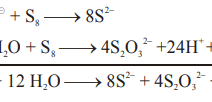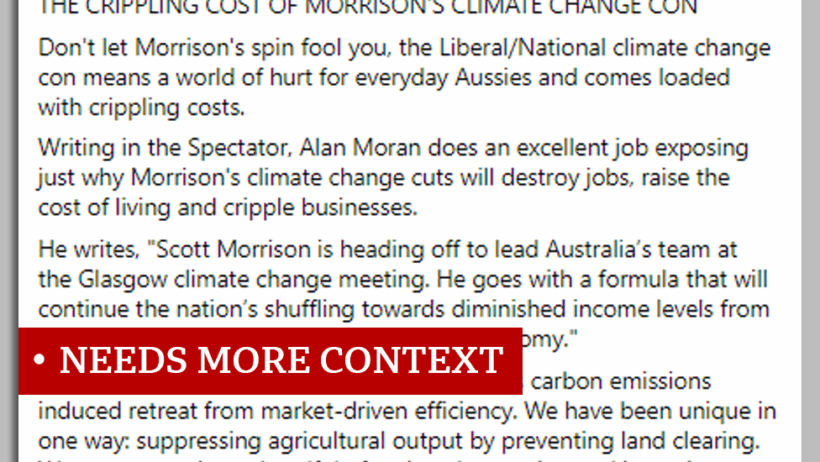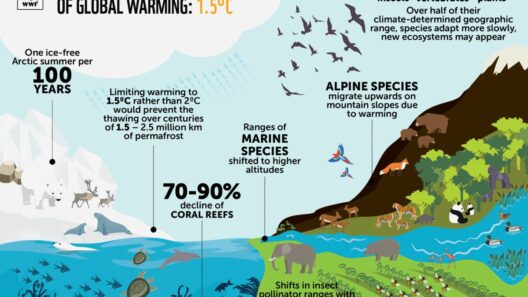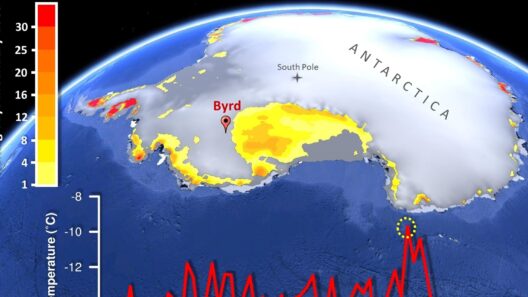Climate change denial remains a contentious issue even as overwhelming evidence suggests its reality. Grasping the various arguments put forth by skeptics enables one to counter these claims with factual rebuttals. The discussions surrounding climate change often reveal a deeper fascination with the interplay between science, psychology, and societal beliefs. Herein lies the crux of the challenge: addressing the skepticism rooted not only in misinterpretation of data but also in cultural and ideological foundations.
To effectively argue against climate change denial, it’s essential to establish a robust foundation of scientific knowledge that underscores an anthropogenic influence on climate. Research overwhelmingly points to the correlation between human activity—specifically greenhouse gas emissions—and rising global temperatures. The Intergovernmental Panel on Climate Change (IPCC) consistently reports that around 97% of climate scientists agree that human actions have significantly contributed to climate change. This consensus is a critical fact to present, as it indicates that the scientific community is not divided on this issue.
One common argument put forth by climate change deniers is the notion of natural climate variability. While it is true that Earth’s climate has experienced fluctuations over geological epochs, the current rate of change is unprecedented in human history. Data from paleoclimate records indicate that current levels of carbon dioxide in the atmosphere are higher than they have been for at least 800,000 years. By highlighting this temporal context, you can underscore the abnormality of rapid climate change in relation to natural cycles, which aids in dispelling claims that recent shifts are merely part of a long-term trend.
Another prevalent assertion among skeptics is the dismissal of climate models as unreliable or overly alarmist. However, advancements in climate modeling techniques over recent decades have significantly enhanced their accuracy. These models are grounded in fundamental scientific principles and regularly updated with real-time data, encompassing various scenarios of future emissions trajectories. Presenting evidence of the successful predictions made by climate models regarding temperature rise and extreme weather events can counter the narrative that models lack validity. For instance, many models predicted the increase in the frequency of severe hurricanes, a phenomenon we have indeed witnessed.
Furthermore, it is crucial to address the socio-political dimensions that often fuel skepticism. The discourse surrounding climate change is deeply interwoven with economic interests and ideological beliefs. Many skeptics may perceive climate policies as an infringement on personal freedoms or as a threat to the status quo. Acknowledging these underlying motivations can facilitate a more empathetic dialogue. Engage in conversations that explore how effective climate action can align with economic growth, job creation, and energy independence. This pragmatic approach demystifies the opposition to climate action and opens avenues for collaboration.
Additionally, examining the portrayal of climate change in media can provide insight into public perception. Misinformation tends to proliferate through sensationalized reporting or the emphasis on fringe opinions rather than scientific consensus. It is advisable to elucidate the distinction between credible sources of information and those that propagate doubt. Encouraging critical thinking and media literacy among peers will get them to question where their information is derived and consider corroboration from reliable scientific outlets.
Moreover, the emotional aspect of climate change cannot be ignored. Skepticism may shelve fear and helplessness regarding environmental degradation, leading individuals to adopt denial as a coping mechanism. For many, admitting the reality of climate change necessitates grappling with anxiety about the future. Engaging with people requires sensitivity toward these emotional responses. Framing discussions around hope, innovation, and community-based resilience can inspire positive action rather than invoke fear. Highlighting local initiatives that combat climate change reinforces the idea that individuals can contribute to solutions, thus fostering a sense of agency over despair.
When addressing specific climate change issues, it helps to cite local or regional examples that resonate with your audience. Data showing rising sea levels threatening coastal communities or increased wildfire risks in familiar areas can personalize the discussion. By contextualizing global phenomena in terms of their immediate consequences, one can foster urgency and heft to the argument against denialism. Real-world impacts make the issue tangible and relatable, enabling a stronger emotional and rational response from skeptics.
Importantly, utilizing historical analogies can serve as a pedagogical tool when countering climate skepticism. Historical instances of scientific denial—such as the rejection of tobacco’s health risks or the controversy over the link between CFCs and ozone depletion—highlight how societal distrust can lead to delay in necessary actions. Drawing parallels between these events and contemporary climate discourse can illuminate the dangers of ignoring scientific consensus, thus reframing the narrative around climate change into one that advocates responsibility and vigilance rather than skepticism.
Lastly, it’s essential to acknowledge that you may not change everyone’s mind through facts alone. The complexities of human belief systems are often resistant to simple rebuttals. Engaging with individuals through courteous dialogue combined with an assortment of empathy, facts, and relatable narratives can slowly shift perceptions. In fostering understanding rather than confrontation, there is potential for meaningful conversation and eventual agreement on the urgent need to address climate change.
In conclusion, arming oneself with a robust array of scientific evidence, understanding the psychological and socio-political underpinnings of skepticism, and fostering empathetic dialogue will empower anyone addressing climate change denial. The challenge is not solely about debunking myths; it’s about navigating a landscape rich in emotional, cultural, and ideological complexity, ultimately leading to greater awareness and action towards a sustainable future.








